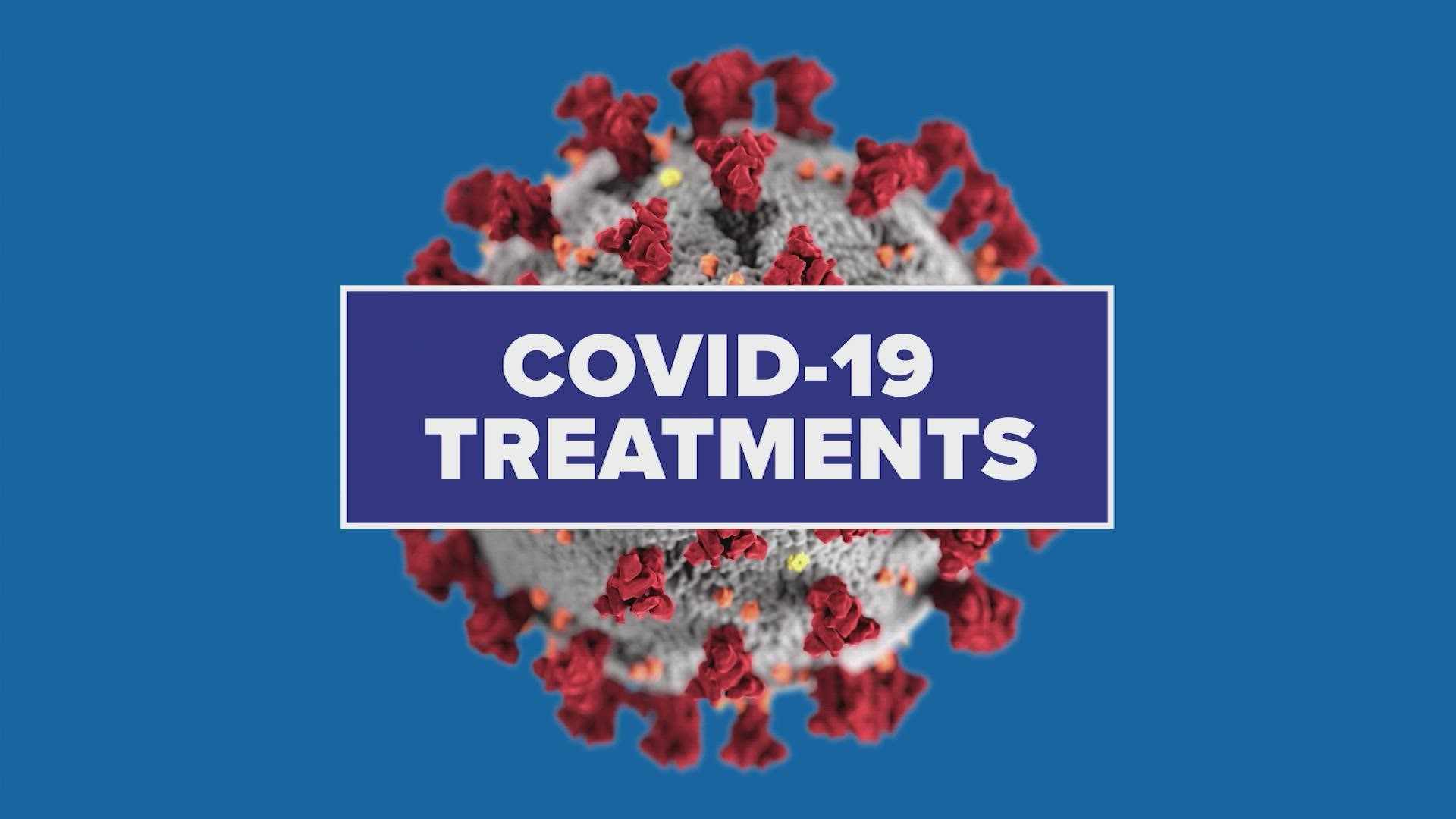DALLAS — We've talked a lot about COVID-19 vaccines. But what about treatments for a COVID-19 infection?
Right now, there are four main treatments.
Antiviral pills
The FDA is set to authorize two antiviral pills from Pfizer and Merck. Pfizer's pill had nearly 90% efficacy in preventing hospitalization and death in high-risk patients. Merck's trial showed the antiviral pills reduced hospitalization and death in high-risk patients by 30%.
Both pills are taken twice a day for five days after symptoms start. Once authorized, it could still take months before either pill is widely available.
Monoclonal antibodies
Monoclonal antibodies are used in high-risk COVID-19 patients. Your body already generates antibodies to fight infections. Because COVID-19 is a new virus, researchers make antibodies in a lab that are programmed to stifle COVID-19's ability to reproduce and spread. They're administered using an infusion in a therapeutics center.
In Texas, you must get a referral for monoclonal antibody treatment from your doctor. Then, you go to one of the more than 470 therapeutics centers statewide.
Remdesivir
The next treatment is a drug called Remdesivir -- an antiviral approved by the FDA. It works by stopping the virus from spreading in your body.
Remdesivir is only given to patients ages 12 and older who have been admitted to the hospital.
Plasma
The FDA also authorized the use of convalescent plasma to fight COVID-19. People who've recovered from COVID-19 donate their blood. It gets processed to remove blood cells leaving behind plasma that's rich in antibodies.
This treatment uses blood from people who've recovered from COVID-19 and have high levels of antibodies. That plasma then is given to COVID-19 patients who are in the hospital to boost their antibodies and fight the virus.
And that's a quick look at COVID-19 treatment options.

